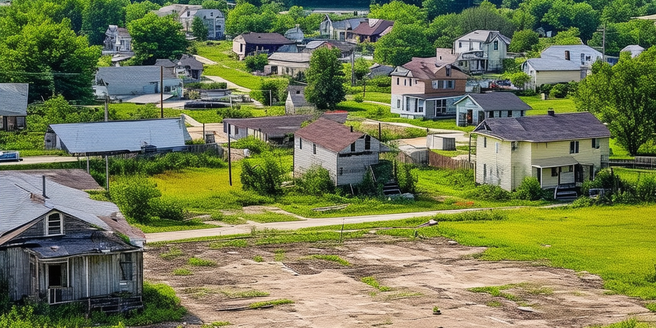Introduction to Rural Affordable Housing
Rural areas often face unique challenges in providing affordable housing options. With lower population densities, infrastructure can be less developed, limiting access to essential services. Economic opportunities in these areas can be sparse, making it difficult for residents to afford housing. However, rural communities also offer the potential for more affordable land and housing prices compared to urban areas. By focusing on sustainable development and community-based initiatives, rural areas can create affordable housing solutions that address their unique needs and resources. Policymakers and stakeholders must collaborate to identify and implement best practices tailored to these environments.
Key Challenges in Rural Housing Markets
The rural housing market faces several key challenges such as limited financial resources, aging infrastructure, and a shortage of skilled labor for construction. Furthermore, the availability of affordable housing stock is often insufficient to meet demand. Low-income families and individuals are disproportionately affected, struggling with high housing costs relative to income. Geographic isolation exacerbates these issues by making access to financial services and government assistance more difficult. In many rural areas, the lack of reliable transportation further limits opportunities for improvement. To overcome these challenges, targeted policies and innovative financial products are essential, ensuring that rural residents have access to safe, affordable housing.
Government Programs for Rural Housing Assistance
Several government programs aim to assist rural housing initiatives, including the USDA Rural Development programs. These programs offer loans, grants, and loan guarantees to promote home ownership and the construction of affordable rental properties. The Low-Income Housing Tax Credit (LIHTC) is another pivotal resource, incentivizing private developers to invest in rural areas. Additionally, HUD’s Section 515 and Section 521 programs provide subsidies and support for rural rental housing. Access to these programs can significantly impact the quality of life for many rural residents. By leveraging these programs, rural communities can enhance their housing stock, making it more affordable and accessible to low-income residents.
Innovative Building Techniques for Cost Reduction
Innovative building techniques are crucial for reducing construction costs in rural areas. Modular and prefabricated homes, for instance, offer a cost-effective and efficient solution by reducing on-site construction time and waste. Utilizing locally sourced materials and labor can also lower expenses while promoting community involvement. Additionally, leveraging advanced software and planning tools can improve project management and coordination. Sustainable practices, such as energy-efficient designs and renewable energy sources, not only reduce long-term costs but also enhance the living environment. By adopting these innovative techniques, rural communities can develop affordable housing that meets current and future demands.
Success Stories from Rural Communities
Success stories from various rural communities highlight the effectiveness of targeted affordable housing initiatives. For example, a small town in Oregon leveraged government grants and community fundraising to renovate abandoned buildings into affordable apartments. A notable impact included revitalizing the local economy and boosting community morale. In another instance, a rural county in Georgia used modular home designs to quickly and cost-effectively provide housing for low-income families. These success stories demonstrate that with the right mix of resources, community involvement, and innovative solutions, rural areas can overcome housing challenges and create sustainable, affordable living options.
Future Outlook and Policy Recommendations
The future of rural affordable housing relies on continued innovation, investment, and policymaking. Key policy recommendations include increasing funding for rural housing assistance programs, promoting public-private partnerships, and encouraging the use of innovative building techniques. Additionally, policymakers should focus on improving infrastructure and access to essential services in rural areas. It is crucial to create sustainable and energy-efficient housing options tailored for rural environments. Government and community efforts must align to address the unique challenges faced by these communities. By addressing these critical areas, we can ensure that rural communities have the resources needed to provide affordable housing for their residents, fostering economic stability and growth.



